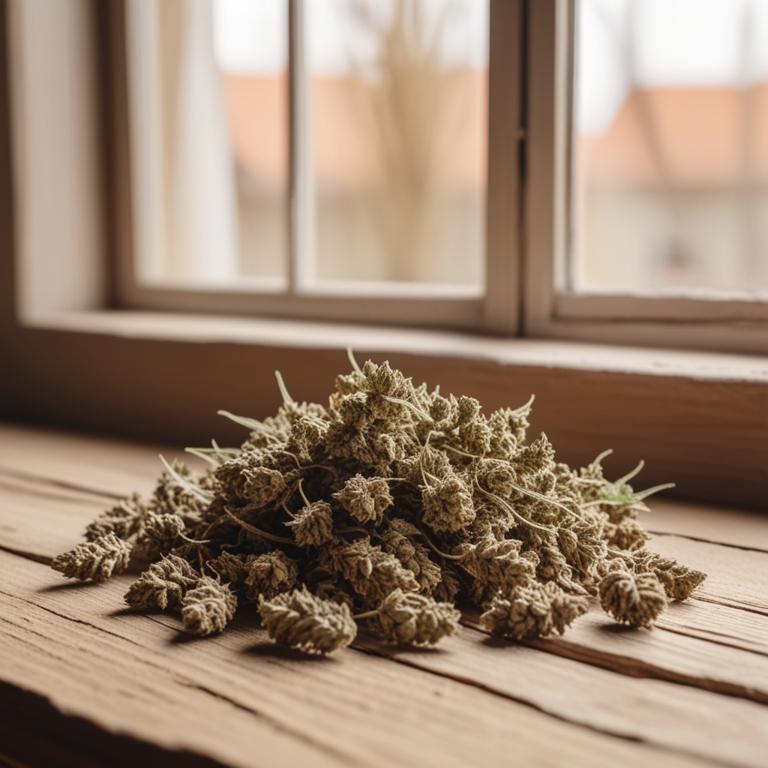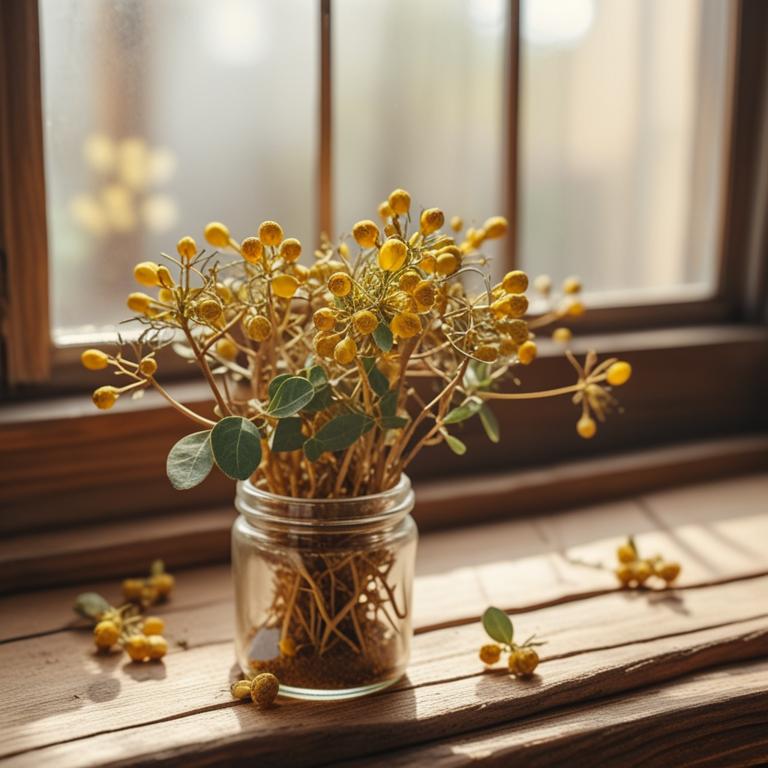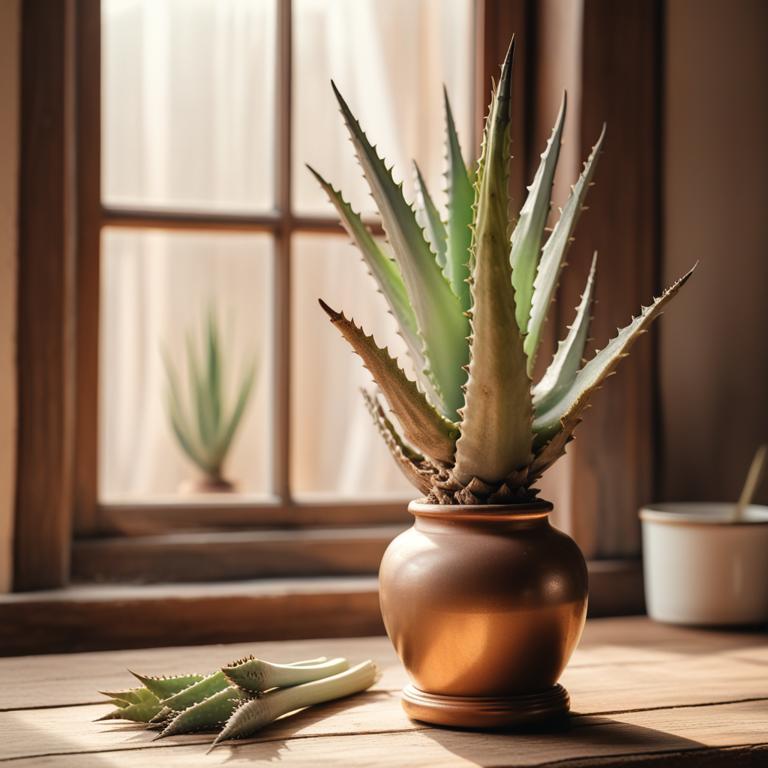Updated: Dec 1, 2024
Nose Bleeding: Causes and Alternative Therapies with Medicinal Herbs
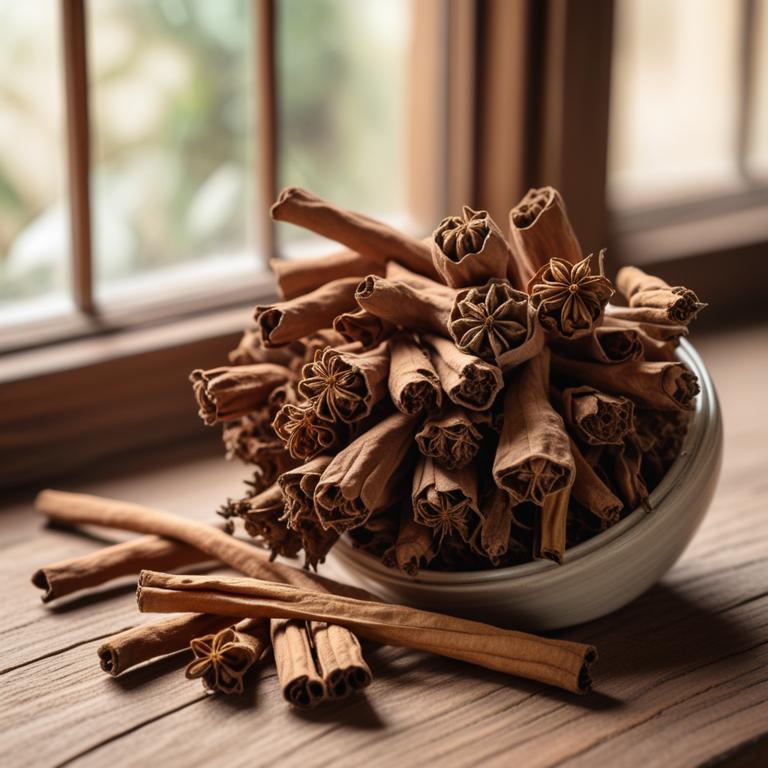
Nose bleeding, also known as epistaxis, can be a scary and frustrating experience.
It can happen suddenly, without warning, and can be caused by a variety of factors such as dry air, allergies, high blood pressure, or even a simple bump to the nose. When you're experiencing a nose bleed, it's not just the bleeding itself that's the problem - it can also make you feel anxious, self-conscious, and even disrupt your daily routine. So, what causes nose bleeding?. Sometimes, it's due to a dry environment that can dry out the nasal passages and cause the blood vessels to break.
Other times, it can be caused by allergies, which can cause the nasal passages to swell and become inflamed. And in some cases, it can be a sign of a more serious underlying condition, such as high blood pressure. Fortunately, there are some herbal remedies that can help to stop a nose bleed and prevent them from happening in the first place. Herbs like aloe vera, witch hazel, and yarrow have anti-inflammatory and antiseptic properties that can help to soothe and calm the nasal passages.
You can use these herbs in a variety of ways - for example, you can make a tea by steeping the herbs in hot water, or apply a paste made from the herbs directly to the affected area.
Table of Contents
What factors contribute to nose bleeding?
The main causes of nose bleeding are often related to our environment and lifestyle choices.
Dry Air, for instance, can cause the blood vessels in the nose to dry out and become fragile, making them more prone to breaking and resulting in nosebleeds. High Blood Pressure is another major cause, as it can put extra pressure on the blood vessels in the nose, leading to their rupture. Trauma to the nose, such as a blow to the face or a fall, can also cause nosebleeds by damaging the delicate blood vessels in the nasal passages.
Lastly, Nose Picking can irritate and dry out the nasal passages, causing the blood vessels to become inflamed and more susceptible to bleeding.
What advantages come from utilizing herbs for nose bleeding?
Using herbs to stop nose bleeding can be a great alternative to traditional methods.
One of the main benefits is that they are often gentle and non-invasive, which means they won't irritate the delicate tissues inside your nose. Many herbs have anti-inflammatory properties, which can help reduce swelling and promote healing.
This can be especially helpful if you have a condition like allergies or a cold that's causing your nose to bleed. Some herbs can also help constrict blood vessels, which can stop the bleeding quickly. Additionally, many herbs have antimicrobial properties, which can help prevent infection and promote a speedy recovery.
They can also be used in a variety of ways, such as making a tea, applying a poultice, or inhaling the fumes from a steaming bowl.
What medicinal herbs are commonly used to treat nose bleeding?

Herbs can be very helpful when it comes to nosebleeds.
Some herbs that can help are Ginkgo biloba. This herb has a special property that helps stop bleeding by improving blood vessel function. This means that it can help blood vessels in the nose to tighten up and stop bleeding. Another herb that's good for nosebleeds is Echinacea purpurea. This herb has anti-inflammatory properties, which can help reduce swelling in the nose and prevent bleeding. When the nose is swollen, it can be more likely to bleed, so Echinacea can be very helpful in preventing this. Vaccinium myrtillus, also known as bilberry, is another herb that can help with nosebleeds.
Bilberries have antioxidants that can help protect the blood vessels in the nose and prevent them from getting damaged. This can help prevent bleeding in the first place. Hamamelis virginiana, or witch hazel, is also a good herb for nosebleeds. It has a special property that helps stop bleeding by drying out the skin and mucous membranes in the nose. When these areas are dry, it's harder for blood to flow and cause bleeding. Lastly, Silybum marianum, or milk thistle, can help with nosebleeds by improving liver function. When the liver is working properly, it can help remove toxins from the body that can cause bleeding in the nose.
By removing these toxins, milk thistle can help prevent nosebleeds.
What are the most used herbal treatments for nose bleeding?
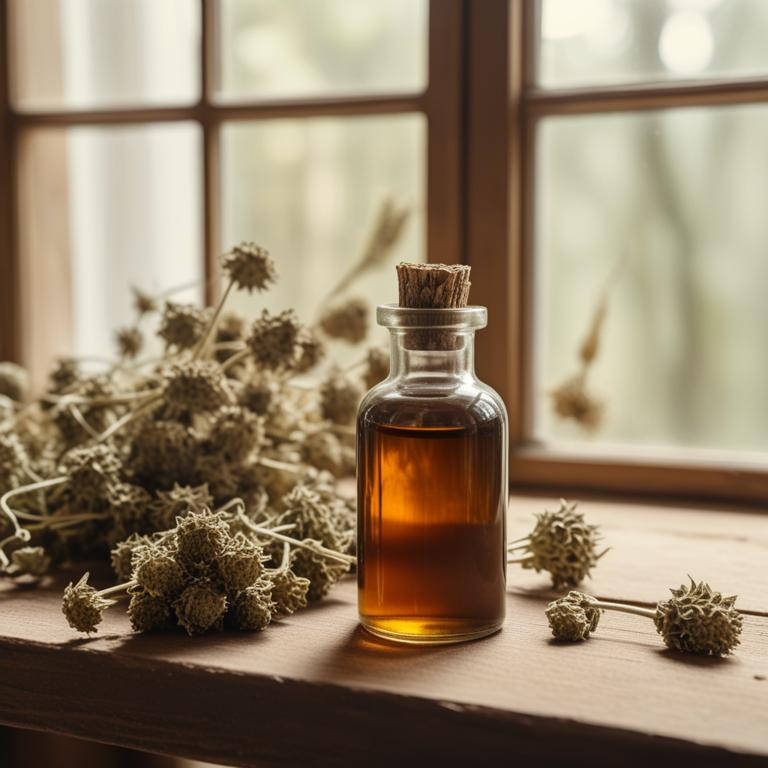
If you're experiencing nose bleeding, herbal preparations can be a great help.
A tincture is a concentrated liquid that you can put a few drops of in water and drink. Tinctures of herbs like witch hazel and yarrow are good because they help stop the bleeding by making the blood vessels smaller and more stable. A decoction, on the other hand, is a liquid made by steeping herbs in water, like a strong tea. Decoctions of herbs like aloe vera and plantain are good because they calm the nasal passages and stop the bleeding. A salve is a topical cream or ointment that you apply directly to the affected area.
Salves of herbs like calendula and chamomile are good because they soothe and calm the nasal passages, helping to stop the bleeding. An infusion is a liquid made by steeping herbs in hot water, but it's much weaker than a decoction. Infusions of herbs like peppermint and eucalyptus are good because they help to calm the nasal passages and reduce swelling. Finally, a capsule is a small pill that you swallow whole. Capsules of herbs like ginkgo biloba and turmeric are good because they help to reduce inflammation and improve circulation, which can help to stop the bleeding. When choosing an herbal preparation, make sure to talk to a healthcare professional first, especially if you're taking any medications or have any health conditions.
Also, be sure to follow the instructions for preparing and using the herbal remedy, and only use high-quality, pure herbs.
Additional Resources:
What herbs should you be cautious of when experiencing nose bleeding?
If you experience nose bleeding, it's best to steer clear of certain herbs that can make the problem worse.
Ephedra sinica, also known as Ma Huang, is often used to thin blood and reduce congestion, but this can actually exacerbate nosebleeds by increasing blood flow and making it harder for the bleeding to stop. Capsicum annuum, or Cayenne pepper, has a similar effect, as it can thin the blood and increase heart rate, which can prolong bleeding.
On the other hand, Glycyrrhiza glabra, or Licorice root, may seem like a soothing option, but it can actually worsen nosebleeds by thinning the blood and interfering with blood clotting. Aristolochia clematitis, also known as Birthwort, contains a toxic compound that can damage blood vessels and make bleeding worse.
Lastly, Podophyllum peltatum, or Mayapple, contains a toxic compound that can slow down blood clotting, which can prolong nosebleeds.
FAQ
Are there any specific herbs that can prevent nose bleeding?
Ginger and turmeric have anti-inflammatory properties that may help reduce nosebleeds.
Peppermint oil's cooling effect can also help constrict blood vessels.
Aromatherapy with these herbs may help stop bleeding by promoting blood clotting and reducing inflammation.
Is it safe to use herbal remedies for nose bleeding during pregnancy?
It's generally not recommended to use herbal remedies for nose bleeding during pregnancy.
Some herbs can cause bleeding or stimulate the uterus, which can be a problem during pregnancy.
It's best to stick with gentle, soothing remedies like cold compresses or saline nasal sprays to help stop the bleeding.
Are there any herbs that can reduce the frequency of nose bleeding?
Some herbs like turmeric and ginger may help reduce the frequency of nose bleeding.
Turmeric contains a compound that helps thin the blood, while ginger has anti-inflammatory properties. These properties can help ease swelling and reduce bleeding.
Drinking tea made from these herbs may also provide relief.
Related Articles
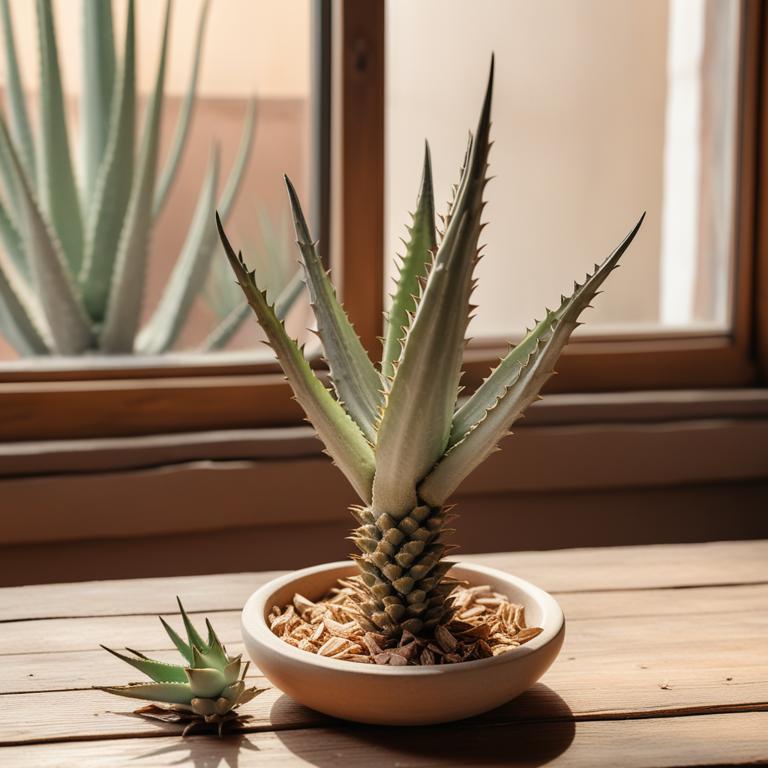
Eye Swelling: Causes, Symptoms, and Medicinal Herb Remedies
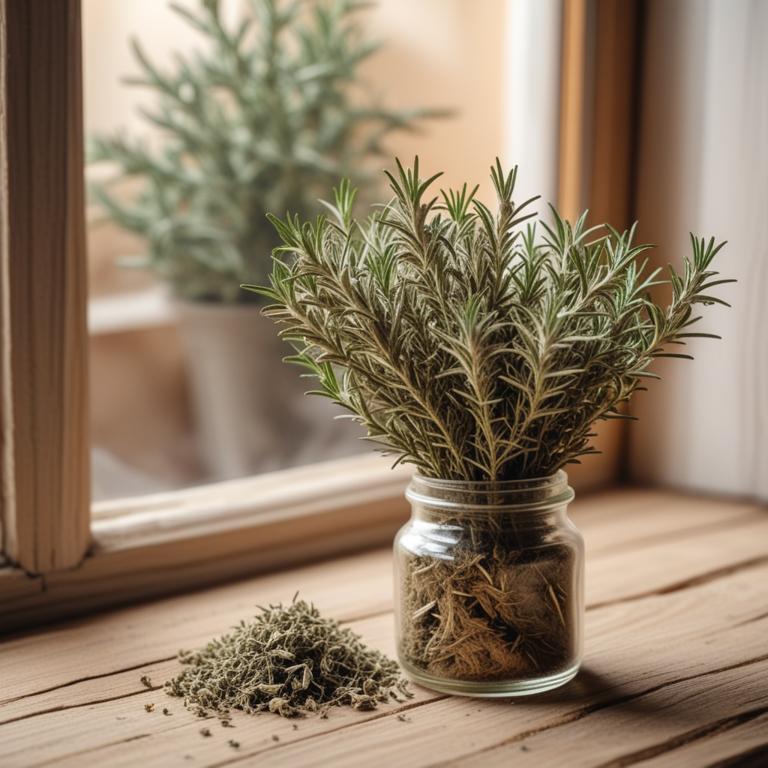
Oily Face: Causes and Natural Remedies Using Medicinal Herbs and Herbal Preparations
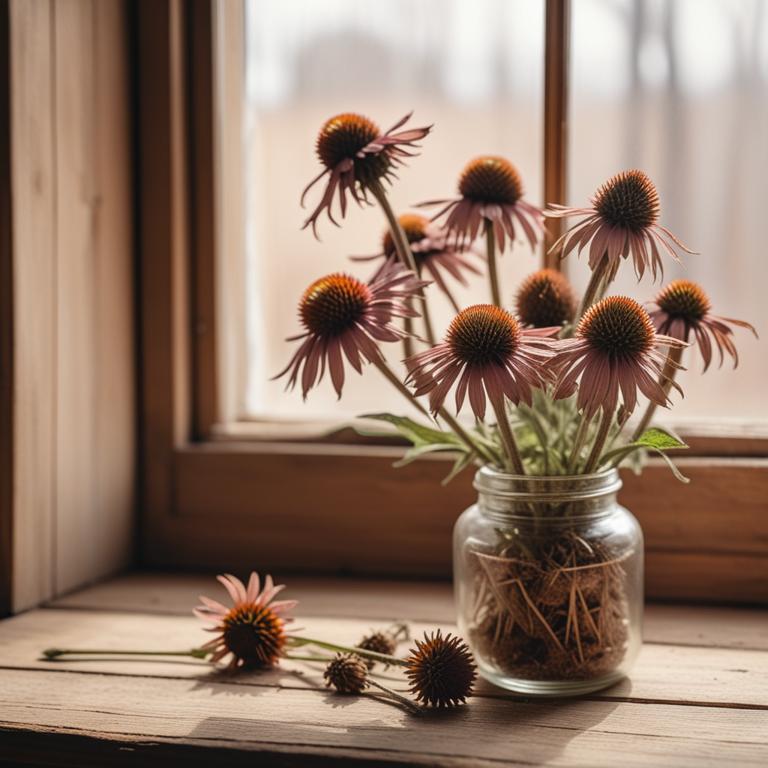
Gum Swelling: Natural Causes and Medicinal Herbs for Treatment
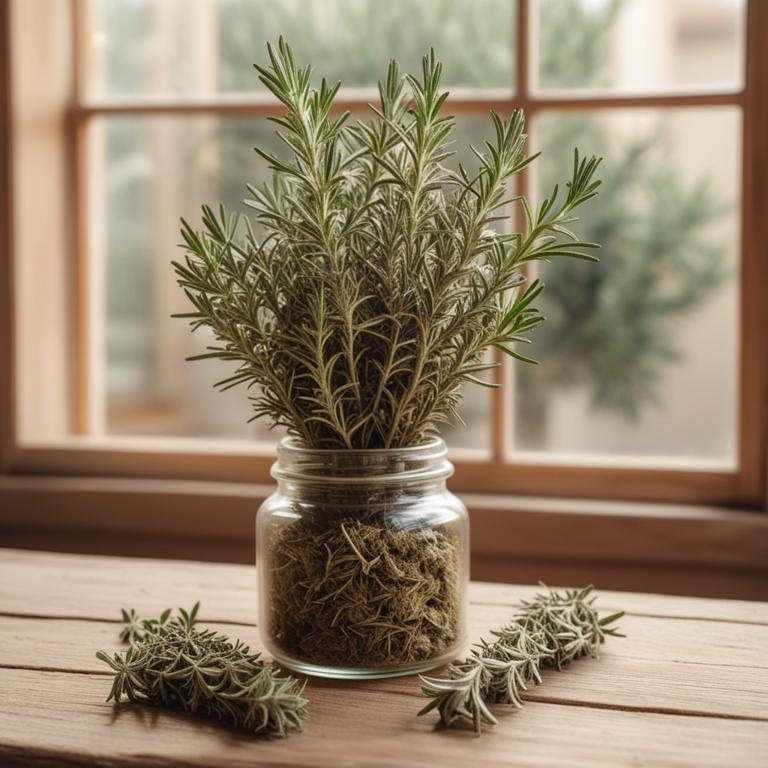
Frizzy Hair Causes, Medicinal Herbs, and Natural Preparations
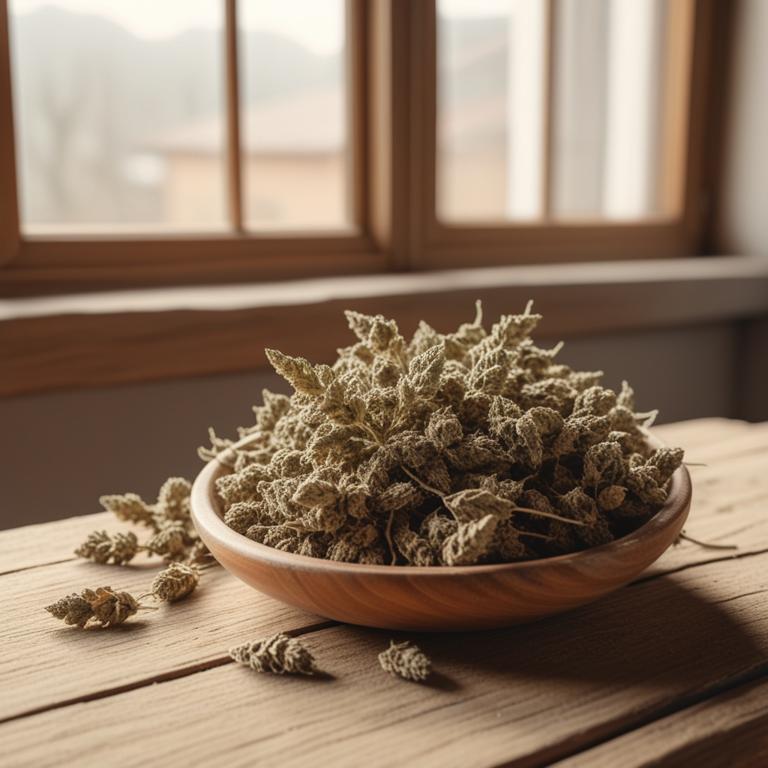
The Ultimate Guide to Itchy Skin Causes, Medicinal Herbs, and Treatments




